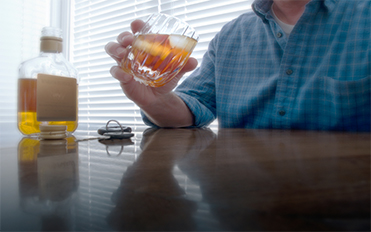It is not uncommon for the topic of substance abuse to come up during counseling. Sometimes people who are struggling with depression or anxiety use alcohol, pot, or other drugs to try to cope with what they are feeling. Those substances can give a person some temporary relief from the unpleasant feelings. The problem is that the unpleasant feelings often return with a vengeance after the substance wears off. This can create a cycle that leads to a downward spiral.
So how do you know if your drinking is appropriate or if there is something problematic about it? There is not one definitive test but there are signs that you might want to pay attention to. The National Council on Alcoholism and Drug Dependence has a self-test you can take to privately examine your use of drugs and other substances. The test is available at https://ncadd.org/get-help/take-the-test/am-i-alcoholic-self-test
One of the main criteria used to determine if there is a problem is whether or not drugs or alcohol interfere with some aspect of your life (work, relationships, etc.). If that is true for you, you might want to talk to someone to explore this issue in more depth. Developing other healthier coping skills is an important step in making sure you don’t let substances take over your life.
If you are a friend or family member of someone who is struggling with substance abuse I highly recommend you look into attending Al-Anon meetings. These are meetings that will help you look at how you can better cope with the impact this is having in your life. Often friends of drug and alcohol users don’t realize how they participate in the cycle so these meetings are very helpful in learning better ways to respond. I also recommend Co-Dependent No More by Melody Beattie. Whether you are concerned for yourself or for a loved one, don’t wait to get help. The sooner you learn a different way to cope, the sooner things can begin to improve.

